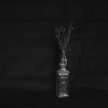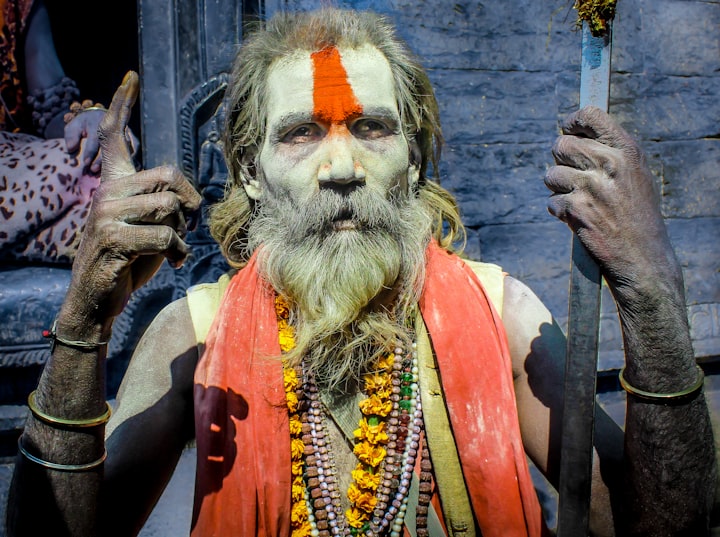
I am not a therapist or a qualified mental health professional. However, I do work in mental health and support others with my lived experience. This post is my story and contains coping techniques that have helped me. There is no right way to recovery. There are other techniques out there, and support systems available to you. If you need help, please visit www.mind.org.uk for further information.
Someone once told me if you're not facing your fears, you're living them. Until recently I never quite understood what that meant.
Most of my life has been ruled my fear - a deep, traumatic, overwhelming dread that I have spent too much of my time trying to escape. It has taken years of therapy, medication, meditation, yoga - (you name it, I've tried it) to try and get a hold on whatever it is inside of me, that makes me so afraid all of the time. Even after all of that - that feeling has never completely gone away, and do you know what? It's not supposed to.
Until you accept that fear isn't something you can completely 'rid' yourself off - you'll exhaust yourself trying to fight it. At my lowest, when my body and my mind were begging me for rest - something inside of me wouldn't let go of that fight, and it ripped me apart. Fear is an inevitable facet of human experience. I had to change my relationship with it if I was going to survive, and this is how I did/do it.
I started with my belief systems - what did I believe about myself, others and the world around me? I spent time with these systems, trying to unpick and understand them. Our belief systems are complex, built from experience, interaction and environment. Emily McDowell said: "Finding yourself is actually returning to yourself. An unlearning, an excavation, a remembering who you were before the world got its hands on you.” I tried to put my beliefs into simple sentences. This is how they looked.
I believe I am weak.
I believe others will leave me.
I believe the world is unpredictable and cruel.
If you haven't considered CBT therapy - I would highly recommend it. It's not for everyone, but it has helped me greatly. Often our belief systems will be tarnished by experience - and realising mine were felt like the rug had been pulled from beneath my feet. If everything I've ever believed is wrong, where do I start? CBT is about creating new pathways and behaviours in the brain. It's a complex process but I'll keep it simple for the purpose of this post (I'm no therapist). Every time I had a thought or experience that confirmed the belief of 'I am weak' - I had to challenge it with evidence 'I am not weak because I have done this.. and this...' - and so on and so fourth for the other beliefs. It sounds exhausting doesn't it? It is at first, but the challenging becomes easier over time, as you get to grips with your new behaviours.
Once I started to do this, I looked at what fear's purpose is. What happens in our body and in our brain when we are frightened? The science behind it - is actually quite remarkable. Fear is ancient, like all emotions. It doesn't matter how many years you go back, through all of the societal and evolutionary changes - fear will always be there. It's purpose is survival, a warning sign. Without it, we'd be defenseless.
When we are afraid - our breathing rate increases and our heart rate follows suit. The peripheral blood vessels constrict, central blood vessels around vital organs dilate to flood them with oxygen, and our muscles are pumped with blood. The brain will focus in on the threat and work in unison with the adrenaline when faced with real danger, often creating a superhuman response. But if we're sat in bed watching a film with a cup of tea - what do we do with all those hormones and angst? I found talking myself through the scientific process helped alleviate the sense of panic. 'Now my heart rate is increasing because it senses danger' - 'my arms are starting to tingle because of the adrenaline' - 'if there was an emergency, I would be more equipped to deal with it'. It doesn't make the experience comfortable - but it can help us to understand what's happening. If we understand something, it disempowers some of our fear.
Ok so I've looked at my core beliefs, and I've learnt about what fear is it and why it's there. Now - how do I stop rejecting and avoiding it. How do I turn this hatred into kindness and acceptance? I think it starts by learning to be kinder to yourself in general. Be gentle with your fear - when you feel it arising, acknowledge it, welcome it and focus on your breathing. What is your fear trying to tell you? Are you feeling overwhelmed? Do you need to take a break - is something deeper worrying you? Sometimes there's a reason, and sometimes there isn't, but there's one constant and certainty - it will pass. It will always pass. Repeating this and practicing this mindfulness of fear will help you to understand it and identify your triggers. Over time, it will become easier to sit with, and you will notice it dissipates faster.
When we choose to ignore fear or bury it - we often find that we'll be using external stimulus to do it. We'll cancel those plans, we'll isolate ourselves, we won't leave the house. I try to look at what I'm doing and why - do I want to stay at home today, or am I afraid to go out? If it's the latter, I'll try to go. Fear can be a useful friend, but it can also fuel false expectations. Try to focus on probability as opposed to possibility.
Finally, start changing your language around fear. We are so used to hearing phrases such as 'don't be afraid' and 'there's nothing to be frightened of'. Ok, let's actually look at that - it's impossible to never be afraid, and frankly - there is a lot to be frightened of. Try changing your phrases to 'it's okay to be afraid', 'I can cope with whatever comes my way, even if it is frightening' and 'fear is a temporary sensation'.
These techniques have helped me overcome a fear of fear itself, and I hope that you find them useful. Taking those small steps and not comparing yourself to others is crucial - it's your journey, nobody else's.
My journey is far from over, I must continue to face some of my fears. If I don't my world will become smaller and my life less lived. Maybe that's what I have been afraid of all along.
About the Creator
Jo Carson
Queer artist/writer from the U.K. 🏳️🌈
Insta - @welikebirdland






Comments
There are no comments for this story
Be the first to respond and start the conversation.